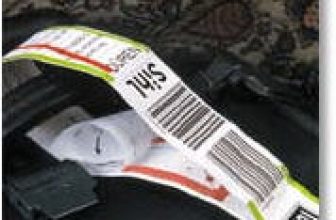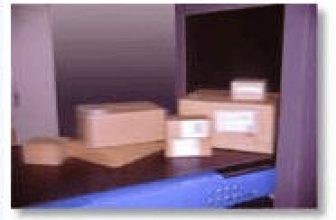
Rockwell Collins uses RFID technology to meet customer needs
[ad_1]
In the past year, aircraft manufacturers have been ramping up RFID tag solutions to meet the needs of Airbus and Boeing. Both companies have set a schedule for marking supplier aircraft parts. To meet these needs, Brady, an industrial and security printing technology company, released a second-generation aviation RFID solution to provide customers with ultra-high frequency (UHF) RFID systems with complete RFID printing and encoding solutions.
As part of the solution, the company’s software, RFID printers, handheld readers and tags are mainly sold to European companies that serve Airbus. Recently, these products have begun to be sold to North American suppliers. For example: Rockwell Collins signed a contract to use RFID tag solutions in their business. The printing and coding system provided by Brady will generate the tags required for wireless identification and tracking of Rockwell Collins’ flying parts.
Brady manufactures 11 different styles of RFID tags that comply with the ATA Spec 2000 standard, 9 of which can be printed on rolls. Brady’s global strategy and marketing manager Wesley Columbia said that this is the world’s largest aerospace label product line. He said that the company’s goal is to meet a variety of needs, including tracking of fuel lines, life jackets, oxygen generators and other devices.
The aviation RFID solution is a product of the Brady SmartID business unit, which can provide RFID printing, encoding and reading solutions. Columbia said Brady has a long history of labeling in the aerospace industry. He said: “Considering Brady’s material science and RFID expertise, the introduction of RFID tags is very normal.” The company’s dual-record tags can store and maintain relevant historical data. Authorized parties can access this information through RFID tags. The company also introduced a multi-record memory tag designed to store historical data on the life of aircraft parts and component maintenance.
In addition to air tags designed for safety equipment, the company also provides a variety of flexible alloy metal tags and rigid metal tags. Brady has also created a chemically resistant surface on its labels, which means that fluids and kerosene fuel will not damage the printed information on the label.
Brady’s aviation RFID solution also includes a desktop software for managing label printing and encoding, and an RFID printer encoder jointly developed with Honeywell for printing and encoding labels. Brady also provides a handheld card reader (Nordic ID or Zebra MC9190-Z card reader), and a software for collecting and reading data.
Columbia said that so far, most of the customers are early adopters of RFID and are the main suppliers of Airbus. In recent months, this customer base has expanded to North America to meet similar requirements from Boeing.
Rockwell Collins intends to use Brady’s solution to open and close metal tags to identify aircraft parts. These tags can be used for items on flat and curved surfaces. Rockwell Collins will use these tags in existing manufacturing workflow systems.
Some of Brady’s other customers’ use cases include fuel lines, electronic components, passenger seats, oxygen generators, and life jackets.
Some companies also intend to use RFID tags to collect and store the maintenance history and expiration management of oxygen generators.
Since life-saving equipment must be regularly inspected and maintained, RFID technology will provide airlines with a quick way to identify the location, condition, safety, and service life of safety equipment without touching these equipment. In some cases, the label needs to be attached to the metal can body, and in other cases, the label needs to be placed on the cylindrical shell.
In addition, aerospace RFID tags are also used to track life jackets and other safety equipment. When there is no RFID technology, it takes more than an hour to check the ID number to remove the life jacket through the barcode label. However, with RFID technology, this process can be reduced to less than a few minutes.
[ad_2]





